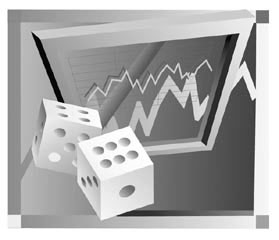Irrational exuberance? Or madness?
By Ravi S. Narasimhan (China Daily)
Updated: 2007-05-30 07:27
Updated: 2007-05-30 07:27
 Alan Greenspan's oft-quoted warning of "irrational exuberance" did not prick the Internet stock bubble in 1996 - it merrily continued to inflate until the crash at the turn of the century.
Alan Greenspan's oft-quoted warning of "irrational exuberance" did not prick the Internet stock bubble in 1996 - it merrily continued to inflate until the crash at the turn of the century.
Perhaps it is no surprise that his warning about a bubble in China's stock market has been met with equal - if not more - irrational exuberance.
The former Fed chief said recently that the bull run on the Shanghai and Shenzhen stock exchanges was "clearly unsustainable" and there would be a "dramatic contraction at some point".
Greenspan was as blunt as could be. Clarity wasn't his strong suit, as legislators at US Congressional heard in one testimony: "I guess I should warn you, if I turn out to be particularly clear, you've probably misunderstood what I've said."
Still, this was a man who could move the global markets with one (albeit) long, convoluted sentence.
convoluted sentence.
But China's investors are unmoved. And that extends to cautionary advice closer to home.
Li Ka-shing, the Hong Kong tycoon who is Asia's richest person, said recently that China's stock valuations "must be a bubble" and that prices were likely to decline.
Zhou Xiaochuan, the governor of China's central bank, warned earlier this month that a bubble may be building in the share market.
But who's listening?
Tales are legion of retirees and laid-off workers emptying their bank accounts to invest in stocks, of people pawning whatever they can or borrowing from friends and family, of office employees in Shanghai given an hour off during work to trade, even foreign students asking classmates to have a punt for them.
How then to explain this?
For one, according to a Reuters report, investors don't seem to think the market's behavior is irrational.
"The Chinese market is something Greenspan does not know very well," an analyst, who perhaps should know better, was quoted as saying.
Another point is that investors see a foreign conspiracy.
Typical reactions: "Imperialists ... don't want to see a strong China ... don't be fooled" and "Greenspan's warning is for the benefit of the US (institutional investors)".
A third explanation is that the stock market is endowed with Chinese characteristics which make it immune to a crash (a colleague who has dabbled in stocks tells me that price/earnings ratios are not germane when it comes to Chinese shares). And that, like the economy, it has only one way to go - up.
An analyst quoted by Reuters said: "Compared to global markets, China is different. The market structure is unique."
The authorities clearly want to see a cooling down - in the economy, real estate and, especially, the stock market. But worryingly, many think that the government would not permit a crash. No way, a colleague sanguinely assured me.
By the same token, the government could have kept housing prices stable. Created jobs for all. Set up a welfare net for society. And provided free, universal health care.
The reality is that a market economy, even a socialist market economy, is a tough beast to tame.
The key words are laissez faire and caveat emptor. And no one should blame the government if they get burnt.
When Isaac Newton, in 1720, made a 100-percent profit on 7,000 pounds he invested in stocks, he is reported to have said: "I can calculate the motions of the heavenly bodies, but not the madness of people."
Wonder what he said when he went into the market at its peak and promptly lost 20,000 pounds.
That the law of gravity is true? Or irrational exuberance? Or madness?
E-mail: ravi@chinadaily.com.cn
(China Daily 05/30/2007 page10)
|
||
|
||
|
|
|
|